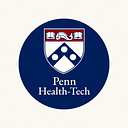The Bio-MakerSpace — Fostering Learning and Innovation Across Many Disciplines
The Bio-MakerSpace offers resources and equipment for all Penn students to achieve project successes.
By Hannah Spector

Educational labs can teach specific laboratory techniques and experimentally demonstrate key theoretical concepts, but this often does not lend itself to design. On the other hand, design labs encourage creativity but are often limited to specific courses, which in turn limits the breadth of resources available.
“We give students the space to learn through experience.”
This is where the George H. Stephenson Foundation Educational Laboratory and Bio-MakerSpace comes in. With over 500 supplies available, the Bio-MakerSpace is open to all Penn students and can accommodate a wide variety of disciplines, such as molecular biology, chemistry work, 3-D printing and laser cutting. There is even a sewing machine. “The wide range of people working together helps to drive creativity. We give students the space to learn through experience,” says Sevile Mannickarottu, Director of the Bioengineering Educational Lab & Bio-MakerSpace.
One of the many resources for hands-on learning that can be found on the Bio-MakerSpace website is Tutorials & Useful Links. Paired well with the full inventory and locations page, this page is sorted by engineering discipline and features tutorials for almost all of the equipment in the lab. “Some of the articles were written by lab staff and others are from reputable sources online. The links provided are useful for both lab regulars and newcomers,” says Mannickarottu.
The flexibility afforded by the Bio-MakerSpace has caused it to become a hub for startups. One example is Strella Biotechnology, founded in 2019 by Katherine Sizov (Biology 2019 & President’s Innovation Prize winner). Strella is developing sensors with the ability to reduce the amount of food waste due to going bad in storage. “Having a Bio-MakerSpace that gives you the functionalities of both a wet lab and a traditional electronics lab is extremely helpful in developing novel technologies” says Sizov on the BE Labs Youtube channel.
The Bio-MakerSpace provides students of all academic backgrounds the resources to turn their ideas into realities, including highly knowledgeable lab staff. Seth Fein (BSE ’20, MSE ’21) has worked at the lab since Fall 2020. “Because bioengineering spans many fields, we encourage interdisciplinary work. Students from Mechanical, Electrical, and Chemical Engineering have all found valuable resources in the lab,” says Fein.
Though the Bio-MakerSpace shut its doors along with the rest of Penn in March 2020, they resumed functioning in a limited capacity in Fall 2020 and have had staff employed in-person since then. “Students can submit part orders and files for 3D printing. Then, they can come pick up their items or have them shipped,” says Fein. Beginning in Spring 2021, the lab partially opened to students again, beginning with senior design groups, and then the lab course BE 310: Bioengineering Modeling, Analysis, and Design a week later. “Working within the policies that Penn has in place this semester, we’re one of the few labs on campus that are open for undergraduates at this time,” says Mannickarottu.
The Bio-MakerSpace and Penn Health-Tech partner during the fall semester to put on the Catalyzer at Penn. This is a two-month program that introduces Penn students to healthcare innovation and entrepreneurship, culminating in a Makerthon weekend — an immersive two-day event to encourage interdisciplinary student teams to develop a simple hardware prototype and pitch solutions to unmet healthcare needs. Additionally, Penn Health-Tech works with Senior Design engineering students to connect them with clinicians and mentors for their projects.
